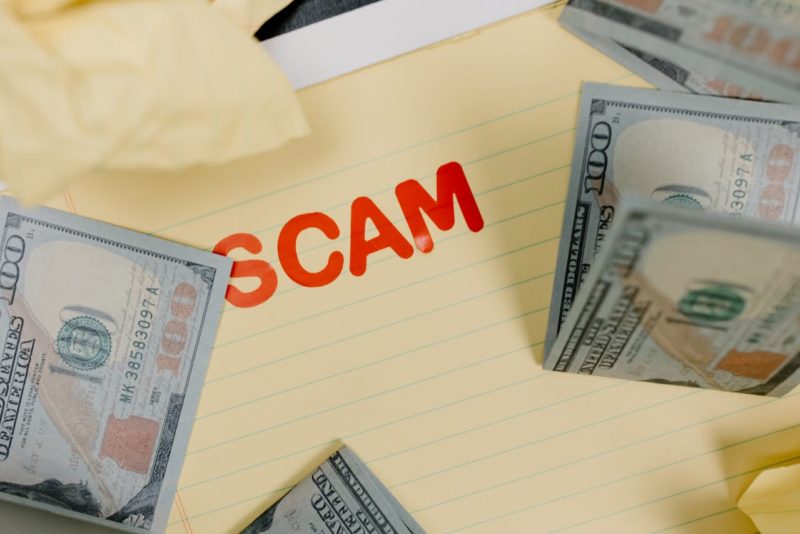How Can I Tell if a Message Is a Scam?

These days, receiving messages from unfamiliar numbers, emails from strangers, or even unusual social media DMs has become rather common. But while some are just annoying or plain irritating, others are outright scams. These scam messages can be used to get personal details from you, make you click on dangerous links, or even lead you to part with your hard-earned cash. So what do we do? How do we identify if a message is actually a scam? Let’s get into it.
It Feels Too Good to Be True
Let’s get started with something simple. If something promises something incredible out of nowhere, such as you’ve won some contest you’ve never entered or some unknown company is offering to send you free money, hold on for just a moment. Scammers are fond of using attractive promises to hook people. They may tell you it’s your prize in some lottery, a new iPhone, or due to some tax refund. In reality, no legitimate company or government office ever just gives out prizes or money just for nothing.
If something seems too good to be true, it most likely is.
There’s A Lot of Pressure to Act Quickly
A telltale sign of a scam message is one that attempts to rush you. You may encounter phrases such as “Urgent,” “Act Now,” or “Final Warning.” The idea is to make you nervous enough that you don’t take the time to think. Scammers also know that people who are nervous tend to be more likely to slip up and not catch red flags.
For instance, it might say your bank account will be closed in 24 hours if you don’t click on a link. Or it might state your package has become stuck somewhere and needs your address confirmation instantly. Always pause and take a second glance before responding. Use a tool like Bitdefender AI scam detector to check the risk-level of the message.
The Sender Appears Suspicious
Scams don’t necessarily come from clearly phony names. Sometimes the name of the sender appears almost legitimate, a misspelled well-known company name or an imposter sounding like an acquaintance or co-worker. If an unknown contact sends you a message, or the contact’s name appears unusual, trust your instincts. Scammers are skilled at presenting something legitimate on the surface, but if you examine it closer, you’ll usually find something unusual.
In addition to all of the above, also be on guard for unusual email addresses. A Netflix message should not be from an address like “netfliix@streamoffers.ru.”
They Ask for Financial or Personal Information
Legitimate businesses don’t just suddenly want to know your password, credit card number, Social Security number, or anything else of a personal nature via text message or email. If the message requests that, it’s a giant red flag. Scammers will also try to sound legitimate, posing as your bank, a shipping company, or the IRS, but don’t fall for it.
No legitimate company will ever ask you to “confirm your details” through a dodgy link or out-of-the-blue message.
The Message has Grammatical or Semantic Mistakes
Although not all messages contain errors, most do. If your message does sound odd, has unusual phrasing, or appears to have been created using a poor translation tool, take a step back. Official businesses typically have polished communications that sound natural.
So if the message was something like “You is winner of $1,000 please to click link now for prize,” you can safely delete it.
They Want You to Click on a Link or Download Something
The most prevalent scam ploys involve sending someone a link to either a fraudulent website or to download something malicious. It may mimic your bank’s login site, an imitation shopping website, or an award site informing them of their win. These fraudulent sites are created to get your login credentials or to install malware on your system.
Never click on the link or download anything from an unsolicited message. If in doubt, go directly to the company’s site by typing it into your browser rather than clicking on something within the message. You can also use advanced security tools like Bitdefender link checker.
The Message Pretends to Be from Somebody You Know
Scammers are sneaky. Sometimes they’ll hack into your account or just pose as you. You might receive a message from your “friend” requesting help or money or claiming to be stuck in another country and in need of a favor. Before sending anything, try reaching out to them another way, such as calling them or sending them a direct message on another site.
If it truly is your friend, they will confirm it. If not, then you’ve just avoided a scam.
You Just Get This Creepy Vibe
Here’s something not said as often as it should be: trust your instincts. If something doesn’t feel right, it likely isn’t. Even if the message appears courteous, if you’re just slightly leery of it, don’t discount the feeling. Sit back for a few minutes and think about it, double-check it with someone else, or research it online to see if other people have flagged it as suspicious.
Your instincts are your best line of defence. Don’t dismiss them.
So what do you do if you receive a suspicious message?
If you believe a message is a scam, don’t respond to it. Don’t click on the link. Just delete it, or better yet, report it. If it was via email, most email clients have a “Report phishing” button. If it was on an instant messaging program, you can usually block the sender and report them. If the message was purported to be from a legitimate company, you can contact the company in question via their official website and inquire if it’s legitimate.
It’s also wise to warn family and friends, particularly older adults who may not have as much technical know-how. A simple warning can put an end to a scam before it can do real harm.
Closing Remarks
Scams are rampant out there, and unfortunately, becoming more convincing every day. But you don’t need to be an IT genius in order to be aware of them. Just be on your guard, think twice before you click anything, and remind yourself: if something seems odd, it probably is.
Cautious does not equal paranoid, it equals smart. Trust your instincts, get educated, and don’t allow scammers to get the best of you.
Would you like to receive similar articles by email?





